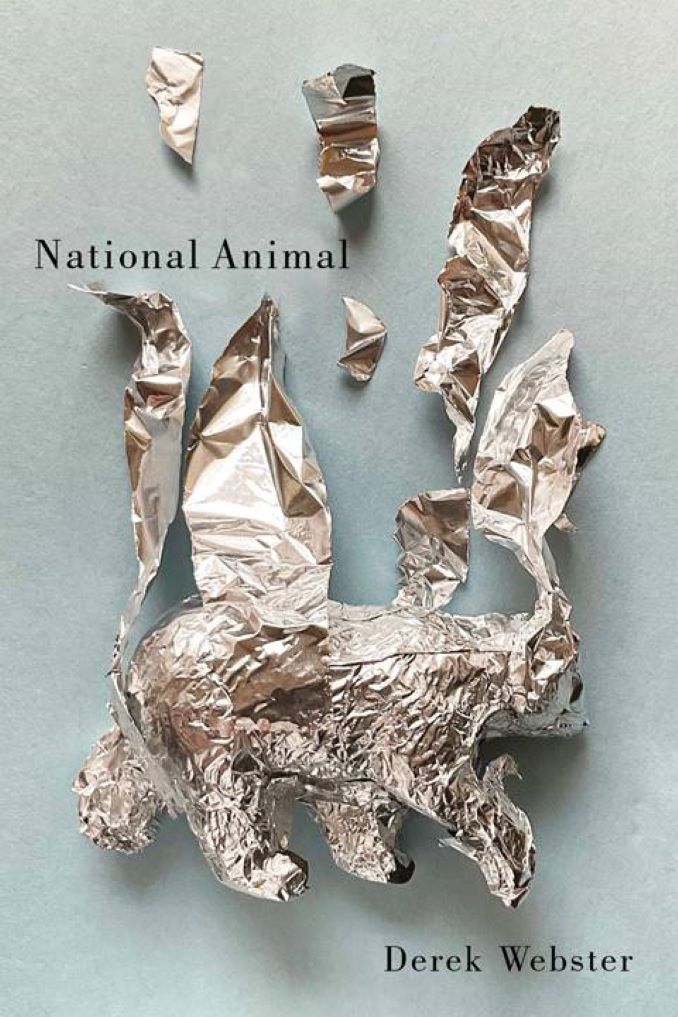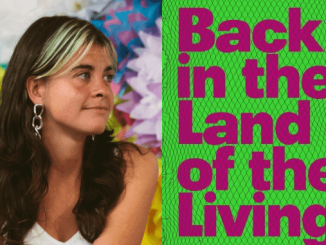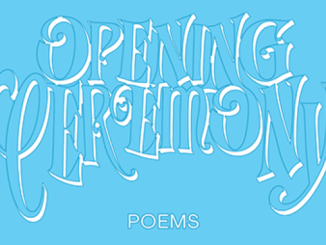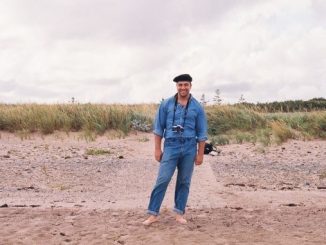National Animal, Derek Webster’s second poetry collection, asks what it means to be a Canadian in a time of tremendous uncertainty and rapid dynamism. Acting as a kaleidoscope that illuminates the multiplicative aspects that form a national consciousness. It does not tell Canadians what they are or what they should be or reduce Canadian identity to any cartographical classifications. Nor does it call into question the beaver as the official representative of Canadian animals. It is not formalistic or nostalgic toward the ruined conventions of confederation poetry. Nor does it take aim at philistinism, suburbanism, or cultural mediocrity, like prior authors principally concerned with Canadian identity. Instead, the book acts as a journalistic enterprise, documenting cultural affairs in poetic terms, the perfect inflammatory slogan graffitied on a wall, the beating heart of a run-down motel, and the study of a dying tree as a flagpole for environmental collapse. The collection capers between the impersonal and universal, from the intimate to the everyday, as to bring forth “ a window to the soul”, like an artifact, to be studied, but one which he does not hold the key.

“ from your prolonged exposure
to Canada, would you recommend it
for headaches? Coughing, sneezing, dry throat?”
The narrator is not the book’s central subject but wonders throughout the subjective, the universal, the youthful, the lascivious, the visionary, and the lustful. In doing so, a reverse personification occurs, where the narration does not project internal strife, but attempts to galvanize the semblance of life. The narrator’s sensitivities are unknown, in this way he allows the readership to focus on the mystery at the heart of national identity. The narrator, being too eccentric for the mainstream thoroughfares and centre limelight, is free to roam instead of ruminate, extrapolate instead of abdicate.
“ There’s no plan for growing into a body.
A fire burns itself across your field
and when it has passed, you remain, a still thing
Hairless in the charred grass and earthen wind,
Grasping at the wrap of bare arms.
Nor is there any plan for growing into a country.” (…)
Gallivanting through moments of enthrallment, disillusionment, surrender, and ecstasy, the collection hither without reproach. The interrogative narration bends to all purposes and listens to the voice of all occasions. Yet, it is notwithstanding in its intentness through storms of nostalgia and wildernesses of superstition. Suspending in the vacated air a certain urgent possibility, making things feasible, and when the reader returns, they can position themselves bolder and better. National Animal does what all great poetry is supposed to; it converts everyday superabundant materials, whether holy or common, into a tangible picture, one that resonates at the heart of what it means to be a Canadian.

Derek Webster’s “Mockingbird” (2015) achieved recognition as a finalist for the prestigious Gerald Lampert Award, honouring the best debut poetry collection in Canada. Webster earned his MFA from Washington University in St. Louis under the mentorship of Carl Phillips and was a founding editor of Maisonneuve magazine. He resides in both Montreal and Toronto.




